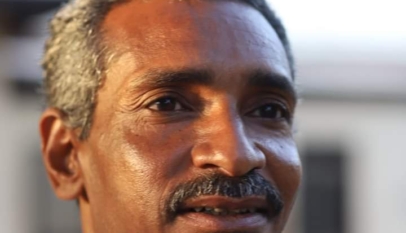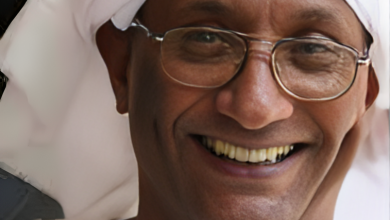After Centuries of Wars, will the Language of Hatred among Sudanese End?

By: Abdullah Aidarous
For about sixty years, fighting among the Sudanese did not stop in the eighteenth and nineteenth centuries AD, from the time the savages ascended to the hierarchy of Funj authority, and until the armies of invaders occupied Sennar and other cities. That is, from the year 1862 until the year of Mohammad Ali Pasha’s invasion of the country in 1821 AD, which was preceded by the wars of the Funj with the Fur, the Funj with the Nuba, and the Fur with the Bahr Al-Ghazal tribes. During it, wars of savages with their enemies and wars among themselves broke out, leading to the comprehensive war that followed, “the war of all against all,” “the war of values”: which created the conditions for the invading enemies, so they seized the opportunity and occupied our land and subjugated our peoples.
Throughout the sixty years of occupation, the resistance continued, and the invaders continued to kill us, using Sudanese hands and weapons against each other, until the Mahdist revolution broke out, which united a large bloc of Sudan and defeated the invaders. Then the state born of the revolution did not refrain from shedding Sudanese blood. In the years that followed our defeat by the English colonizers of the Mahdist revolution with the killing of Karari in the year 1898 until independence in the year 1956 (about sixty years), the resistance did not stop either. The colonizers continued to kill us by employing some of us against us until our blood flowed in many parts of the land of one homeland, in Gezira, in Darfur, in the south, and in the Nuba Mountains. The national elite that took power from the colonialists did not hesitate to carry out the same mission against their citizens since the “Torit” rebellion in 1955 until the “Hemeti” rebellion in 2023.
What lesson have we learned? Where is the summary of the experience? Nothing unfortunately. Here we are once again diving into the language of hatred and intolerance towards the tribe, and the illusion that solutions to the country’s problems begin with erasing and removing signs of difference and cultural differences, instead of accepting and celebrating this distinction and even making it a source of wealth and richness.
The language of hatred that stems from distinctions and differences between one tribe and another, or the glorification of one region and the denigration of others, is not the cause of war, of course, if we conclude that the main motive for all wars is the theft of wealth and the acquisition of power to ensure the continued depletion of the nation as a land and as a human being. But the language of hatred is the dynamo of war, which gives it the power of self-propulsion, continuity, and spread, and with it the war party gains new ground with every sunset. The language of hatred is an intentional and organized propaganda act, to separate the war from the personalities of its main planners and the beneficiaries behind it, and to pin the blame on a tribe, region, or party, and to give legitimacy to the despicable acts and ugly practices that occur during it, as long as the victims belong to another group, or another tribe, or Another province.
The language of hatred against any Sudanese tribe is intended to falsify the nature and reality of the conflict. It is the thick dust that fills the eyes and obscures the vision. It is the mirage that takes you to the valleys of thirst and you will not survive, because the search for solutions by eliminating the different that does not resemble us is a deadly quest, and it has no end in the nature of life and the nature of humans. There is no region that is not inhabited by tribes with differences, and there is no tribe that does not have clans and groups that differ in appearance, heritage, pride, language, and ways of expression. There is no neighborhood, village, or community in which people match this deceptive cinematic fantasy, so where will calls for hatred lead us? More than the division of brothers and sisters in one family, but rather the division of the individual who includes between his two sides a diverse and deeply Sudanese affiliation? All of this will only lead to more ongoing division as long as the approach of those who claim to address national problems and crises and their language in pulpits remains amputation, and the nation will not have a living body left.
Despite all the tragedies and times that preceded, the national memory maintains a long record of unity, advocacy, and transcendence of wounds. Sudan, from all tribes, skins, and languages, truly united behind the fluttering banners of the Mahdi, victorious in the revolution against the occupier, and he continued the resistance and jihad against the new colonizer in all regions. It began in the Nuba Mountains in multiple uprisings until Sultan “Ajabna” united the tribes and was succeeded by his daughter, Princess Mendi. The Shilluk and Nuer revolted in the south. In Darfur, Al-Faki Abdullah Al-Sahini and other revolutionaries rose up in anger and Wad Habouba resisted in Gezira until the national resistance was integrated into the White Brigade movement. Who else did not love the leader Ali Abdul Latif? History records on this land ancient eras of prosperity and peace, whose edifices and pyramids still bear witness to the renaissance. Sudan created a brilliant life in its modern cities and urban centres, despite the oppression of foreign and national rulers. They studied and worked together, rejoicing and saddening together.
The most important tactic used by publishers of hate language is to begin by belittling, disdaining, and trivializing national history, attaching failure to every achievement of a brilliant national figure, glorifying the colonial foreigner, and denying all periods of brotherhood between Sudan and common struggle. And underlining the epics of advocacy and solidarity and transforming the large window overlooking the pledges of Sudan’s goodness to each other, and the tolerant morals of all of Sudan in its various regions and tribes, into a small hole that only shows you incidents of hatred and bitterness. As much as we need to read the historical and circumstantial contexts that led to some oppressing others, we need to examine the spontaneity with which Sudan treated the foreign settler, began moving from one region to another or from one country to another. Indeed, national tolerance extended throughout the length and breadth of the country, even to foreign strangers, and embraced them. I honored them and marked them with our nature and custom, but those who run with hatred from one podium to another do not want to see anything but a reflection of their vile self, and they wish they could erase from our memories the loud chant of the revolutionaries in Port Sudan in December, “You racist and arrogant person, the whole country is Darfur,” and the Nyala fans chanting for them, then rising. Atbara train with revolutionaries of all ethnicities and tribes to the homeland square with love alone and nothing else.



